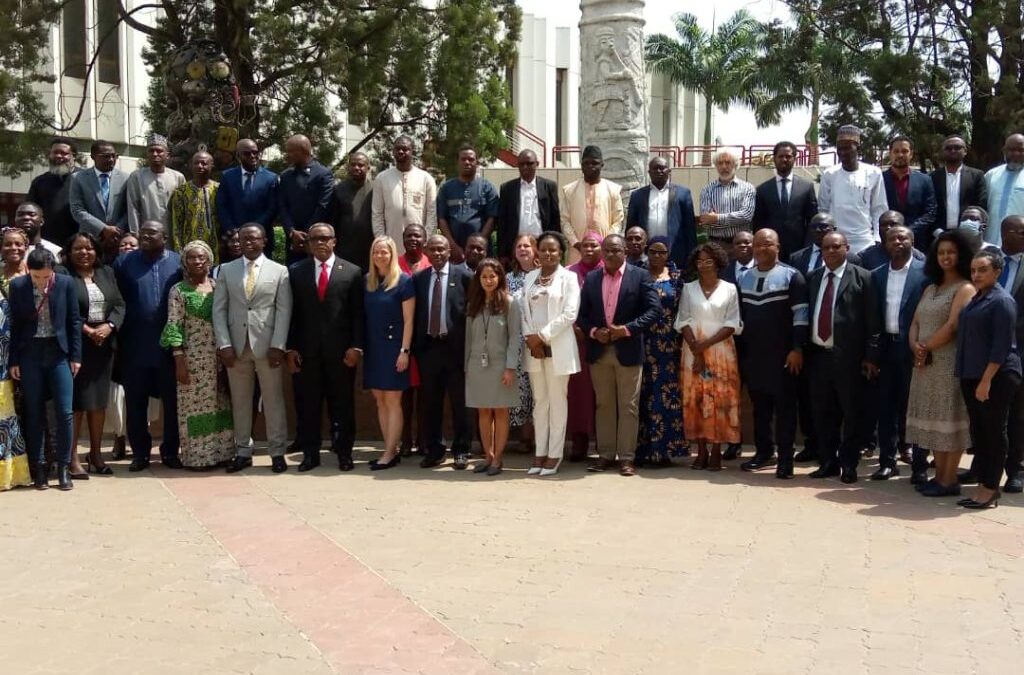The Federal Government has expressed optimism that, despite obstacles, the Economic Community of West African States (ECOWAS) region will see major developments in public health.
During a workshop for directors of National Public Health Institutes (NPHIs) in West Africa, Dr. Chukwuma Anyaike, Director of Public Health in the Federal Ministry of Health and Social Welfare, gave the assurance. The event took place in Abuja on Monday.
The resolution creating the ECOWAS Regional Center of Disease Surveillance and Control was approved at the 47th ECOWAS Authority of Heads of State and Governments, which was held in Accra in December 2015, according to the News Agency of Nigeria (NAN).
In order to improve nations’ abilities to prevent, identify, and effectively address the main threats to public health, the resolution called for the creation of a regional network of national public health institutions.
In light of this, the West African Health Organization was given the mandate to initiate support initiatives for member states and carry out the essential tasks to enable preliminary assessments in ECOWAS nations in 2016.
The team of the Regional Center for Disease Surveillance and Control (RCSDC) has arranged four in-person meetings for regional NPHI directors in addition to recurrent online consultations.
According to Anyaike, the potential for cooperation, ingenuity, and group effort held the key to significant advancement in the area.
“As we navigate the complexities of environmental degradation and its far-reaching impacts, it is crucial to recognise and harness the potential inherent in working together towards sustainable solutions,” he said.
He claims that despite its rich diversity and dynamic cultures, the area faces a wide range of public health issues, from environmental health concerns to infectious diseases and non-communicable diseases.
He said that the emergence of the COVID-19 pandemic few years ago showed that the region must always be prepared for an epidemic.
“The unprecedented crisis tested the resilience of our health systems, challenged our scientific knowledge, and highlighted the importance of robust public health infrastructure and coordinated response mechanisms.
“Yet, it also underscored the power of solidarity, cooperation and collaboration in addressing common threats.
“We must watch the threat of antimicrobial resistance and not forget the principles of One Health,” he urged.
He said that Nigeria had come up with a four-point agenda that would guide the country in its resolve to protect lives.
“These include improving leadership and governance, improving population health outcomes, unlocking the health sector value chain and improving health security for all Nigerians.
“Local production of health products including diagnostics, medicines, vaccines and other health commodities will be a sure step towards ownership and sustainability of health intervention in Africa,” he said.
He said that directors of NPHIs had a critical role to play in guiding the nations through turbulent times and charting a course toward a healthier and more resilient future.
“Our institutes serve as the cornerstone of public health surveillance, research and response, providing evidence-based guidance to policymakers, healthcare professionals and the general public.
“This annual meeting provides us with another opportunity to reflect on our collective achievements, share best practices and identify areas for improvement,” he stated.
Vodina Sam
Related posts
Reviews
Follow Our Activities On Facebook
9 hours ago
9 hours ago
11 hours ago
12 hours ago
16 hours ago
SUBSCRIBE
[mc4wp_form id=”2012″]
Top Reads!
#BigBrotherNaija “Level Up” Week 6
Though last Sunday Sunday was meant to be a “no-eviction” day, it came as a shocker when fake housemate, Modella…
Dating in 2022; Situationships Are Not For The Fainthearted
Situationships are defined as that space between a defined relationship and something other than a friendship. It is a romantic…
20 Questions With Dinta Media’s Visual Storyteller, Chimeremogo Nwoke
Dinta Media is not really just a media production brand but we like to see ourselves as a hub for…
How Are Nigeria’s Small Businesses Coping?
The current rising rate of inflation and other burdens against the Nigerian economy speaks to the realities of the times.
Thrifting Is All The Rave Now, Here’s Why
By Amy Adindu The affordable clothing movement has gained global attention and acceptance as we’re all trying to look like…
#BigBrotherNaija “Level Up” Week 2
Week 2 of the highly watched Nigerian TV show kicked off with an early plot twist. On Sunday, Big Brother…
#BlueTunes: Burna Boy, Omah Lay Top Album Picks For July
July was a promising month for music lovers; from Lizzo’s album titled Special and Imagine Dragons’ Mercury, (Acts 1 &…
#BlueTunes Album Picks For June
Gbagada Express – Boj Bolaji Odojukan, popularly known as BOJ, was raised both in England and Nigeria. He shot to…
“A Creative’s Dream” with Jeff Chinonso
On the 26th of June 2022, Jeff Chinonso hosted his first solo art exhibition. The Augmented Reality exhibition themed “A…
Nigerian API-based company Thepeer raises $2.1 million
Tech infrastructure startup Thepeer has raised a $2.1 million seed round according to a report from TechCabal. Thepeer, a Nigerian…
Dika Ofoma, Ugochukwu Onuoha take on grief in Debut Film “The Way Things Happen”
The twenty-minute film focuses on the loss of a loved one, and how grief changes a person.
Nigerian Startups might just be Crippled by a Recently Leaked bill
Over the years there has been talks of amendment on the 2007 Act of the National Information & Technology Agency (NITDA).
Why We Love Kelechi Amadi Obi
The definition of talent is Kelechi Amadi’s iconic story. Imagine a person who studies law in school, gets called to Bar, and leaves it all for something different and unrelated…Painting!

















